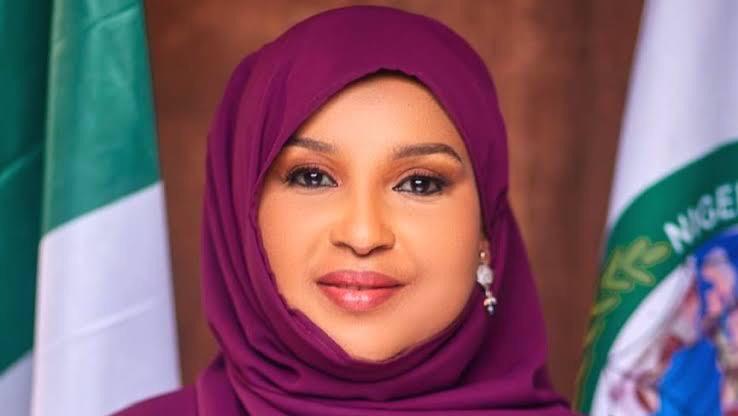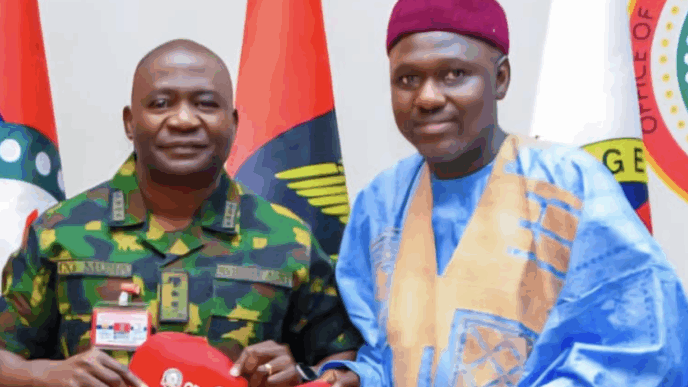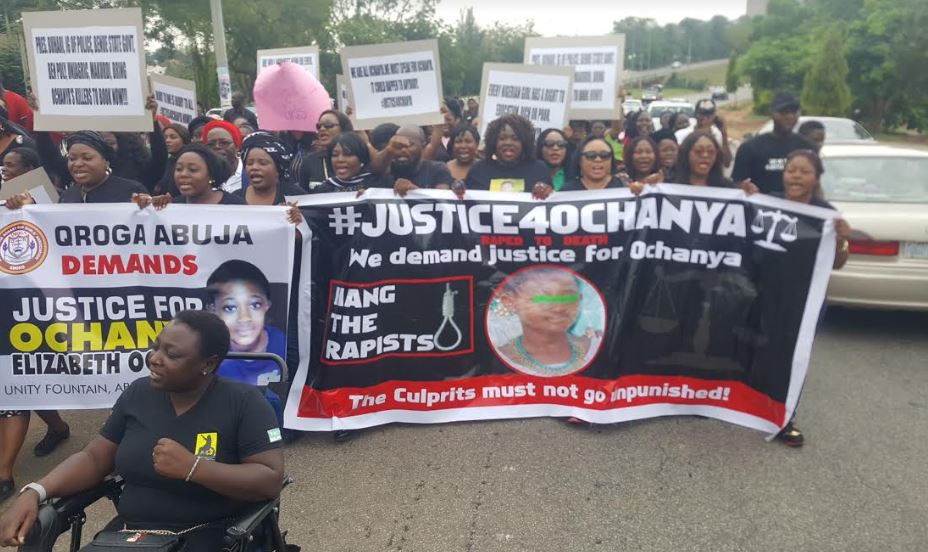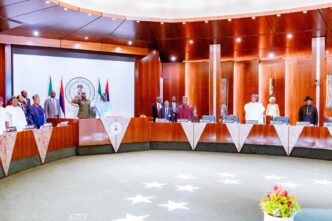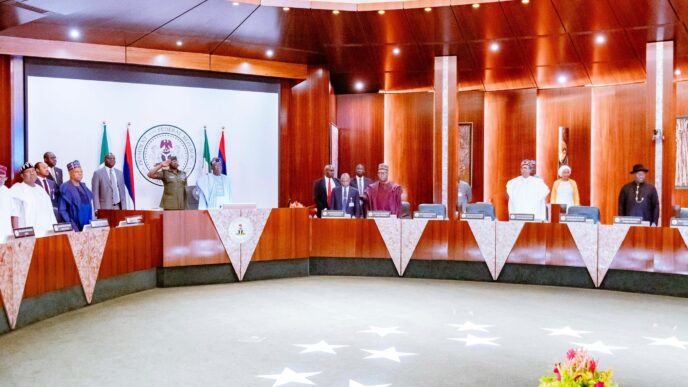BY ADAGHER TERSOO
When Nigeria was placed on the Financial Action Task Force (FATF) grey list in 2023, few believed the country could swiftly reverse its fortunes.
The designation, a diplomatic rebuke signalling strategic deficiencies in anti-money laundering and counter-terrorism financing controls, sent ripples through the global financial community.
Banks became wary, foreign investors grew hesitant, and Nigeria’s reputation took a blow. But in a little over two years, the story is changing.
Advertisement
On 24 October 2025, Nigeria officially exited the FATF grey list, reclaiming its place among compliant nations and reigniting investor confidence.
At the heart of this quiet turnaround is Hafsat Abubakar Bakari, the determined Director and Chief Executive Officer of the Nigerian Financial Intelligence Unit (NFIU). Her leadership, marked by methodical precision and institutional discipline, has been instrumental in restoring global faith in Nigeria’s financial system.
Since assuming office, Bakari has focused less on speeches and more on systems strengthening the NFIU’s operational architecture, deepening inter-agency collaboration, and ensuring Nigeria’s compliance framework meets international standards.
Advertisement
“Our removal from the FATF grey list reflects Nigeria’s commitment to transparency, accountability, and the rule of law in financial transactions.
“It is a collective victory for the country’s financial system and for all agencies that worked tirelessly to achieve it,” she said after the announcement.
Nigeria’s exit from the grey list followed rigorous evaluations and sustained reforms led by the NFIU in partnership with key institutions such as the Central Bank of Nigeria (CBN), Securities and Exchange Commission (SEC), Corporate Affairs Commission (CAC), the Economic and Financial Crimes Commission (EFCC), and the Independent Corrupt Practices and Other Related Offences Commission (ICPC).
Together, these agencies addressed FATF’s 30-item action plan, closing regulatory gaps, enhancing risk assessments, and improving financial intelligence sharing.
Advertisement
Bakari’s leadership has also been defined by her insistence on professional competence. Under her watch, the NFIU, in collaboration with the Deutsche Gesellschaft für Internationale Zusammenarbeit (GIZ), recently organised a two-day capacity-building workshop for Anti-Money Laundering and Counter-Financing of Terrorism (AML/CFT) officers working in Nigeria’s Free Trade Zones.
The training focused on strengthening technical skills, improving compliance tools, and reinforcing trade transparency.
This hands-on approach to reform reflects Bakari’s broader vision: building durable systems rather than temporary fixes. Her background at the EFCC, where she once led the strategy and reorientation unit, equipped her with the discipline to turn institutional challenges into measurable progress.
Colleagues describe her as deliberate, organised, and quietly relentless, the kind of leader who prefers results to rhetoric.
Advertisement
Her efforts have not gone unnoticed internationally. At the FATF plenary in Paris, the organisation’s President, Elisa de Anda Madrazo, commended Nigeria for demonstrating “strong political commitment and visible improvements in transparency, enforcement, and beneficial ownership reporting.”
She credited the country’s inter-agency coordination and government-wide reforms as key factors behind the delisting.
Advertisement
Bakari, in turn, credited President Bola Ahmed Tinubu’s administration for providing the political backing that made reform possible.
“The Presidency’s support was instrumental in completing the FATF Action Plan and aligning Nigeria with international standards,” she said.
Advertisement
The presence of three Nigerian ministers, Justice Minister Lateef Fagbemi, Finance Minister Wale Edun, and Interior Minister Olubunmi Ojo at the FATF plenary underscored that commitment.
Nigeria’s return to the FATF white list carries economic significance beyond regulatory compliance. It boosts investor confidence, lowers the country’s financial risk profile, and opens the door to renewed foreign partnerships.
Advertisement
International banks and investors can now engage Nigerian institutions with fewer compliance barriers, reducing transaction costs and improving cross-border flows.
For President Tinubu’s economic team, the timing could not be better. The FATF endorsement supports ongoing fiscal and monetary reforms from the unification of exchange rates to efforts at stabilising the naira and attracting foreign investment.
It signals to the world that Nigeria’s financial environment is becoming more transparent and less risky.
The benefits also extend to Nigeria’s digital economy. With stronger AML/CFT compliance, fintech firms and digital payment operators can now access global markets with fewer restrictions.
Venture capital inflows and cross-border partnerships are expected to grow, reinforcing Nigeria’s status as Africa’s fintech hub.
Yet for Bakari, the work is far from over. She is cautious about celebrating too soon, aware that maintaining credibility demands constant vigilance. “Our focus now is on sustainability, ensuring that the systems we have built remain effective and that Nigeria never returns to the grey list,” she said.
To that end, the NFIU is investing in advanced analytics, expanding its data-sharing networks, and fostering stronger ties with global partners such as the Inter-Governmental Action Group against Money Laundering in West Africa (GIABA). These efforts are designed to keep Nigeria ahead of evolving threats in financial crime and ensure long-term compliance.
Hafsat Bakari’s rise from a dedicated EFCC officer to the head of Nigeria’s top financial intelligence agency mirrors the country’s own journey, from vulnerability to credibility. She does not command attention with grand speeches or political posturing; instead, she works behind the scenes, building systems that endure.
In an era where trust and transparency are the ultimate currencies, Bakari stands as a symbol of what steady, principled leadership can achieve.
Nigeria’s removal from the FATF grey list is not just a bureaucratic milestone; it is a restoration of national confidence and a testament to what quiet reformers can accomplish.
Through discipline, collaboration, and an unyielding commitment to integrity, Hafsat Bakari has done more than reform an institution; she has helped rebuild Nigeria’s credibility in the eyes of the world.
Perhaps, it will be safe to state that whoever advised President Bola Ahmed Tinubu to appoint Hafsat Bakari as the Director/ CEO of Nigerian Financial Intelligence Unit (NFIU) has offered one of the most patriotic and generational services to our nation. The fecundity of her fresh ideas, vision, and drives
has proven that sometimes, the most profound revolutions happen quietly.
Adagher Tersoo, a public affairs analyst and development communications expert, writes from Abuja. Can be reached via [email protected]
Views expressed by contributors are strictly personal and not of TheCable.
